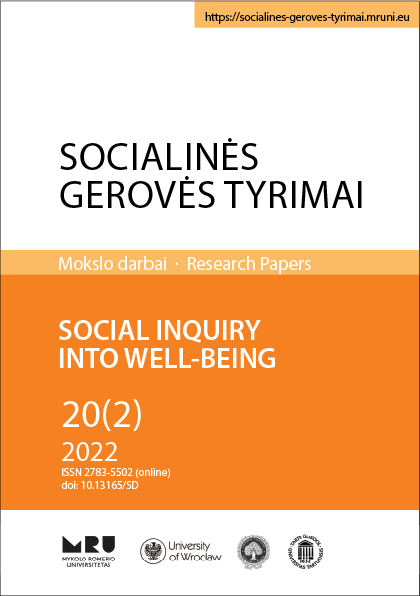APPLYING MONOCAUSAL, BICAUSAL AND PRIMARY THERAPEUTIC INTERVENTION MODELS IN THE LITHUANIAN CHILDREN’S RIGHTS PROTECTION SYSTEM
##plugins.themes.bootstrap3.article.main##
Abstract
In 1992, Lithuania joined the Convention on the Rights of the Child, thus committing to ensuring
children’s rights by all possible means. Parents take primary responsibility for the implementation of
children’s rights, but in cases where a parent uses their authority against the interests of their child,
the State has the power to intervene in a family. T. Furniss (1991) distinguished three basic models
of intervention: Primary Punitive Intervention (PPI) (the monocausal model); Primary Children
Protective Intervention (PCI) (the bicausal model); and Primary Therapeutic Intervention (PTI).
The goal of this article is to discuss reforms in the children’s rights protection system in Lithuania
by applying T. Furniss’ theoretical model. For a long time, the monocausal model dominated in
the country. In 2017, corporal punishment was prohibited by law, which provided an impetus for
the further reorganizational development of the children’s rights protection system. In 2018, new
interventions and methods of social assistance such as case management and mobile teams were
established, and these methods became responsible for the protection of children’s rights when a
family faces challenges. Thus, the principles of the bicausal model were introduced, and further
changes in 2020 added traits of the PTI model.
##plugins.themes.bootstrap3.article.details##
Mykolas Romeris University retains copyright ownership and publishing rights. Authors contributing to Social Inquiry into Well-Being agree to publish their articles under a Creative Commons Attribution 4.0 International Public (CC BY) License.![]()







